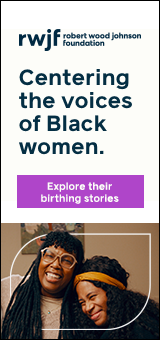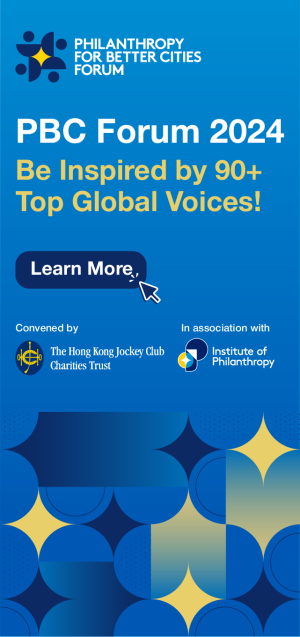The 16th International Society for Third-Sector Research (ISTR) Conference, held in the vibrant city of Antwerp in July 2024, marked a significant milestone in the landscape of third-sector research. This year, the conference witnessed a remarkable and encouraging trend: the prominent presence of young, emerging scholars as main authors and presenters. This shift signals a refreshing change in the discourse surrounding third-sector and philanthropy studies, an area often dominated by seasoned academics and practitioners.
Having attended the ISTR conference for the second time, it was incredibly clear to see the growing enthusiasm and engagement of young people in third-sector research. This surge of youthful energy is not just about filling the academic pipeline; it’s about injecting new perspectives and innovative ideas into a field ripe for transformation. Yet, despite this promising development, it is essential to recognise that in many third-sector and philanthropy conferences, whether practitioner-focused or academic, the voices of young people are still largely underrepresented. This gap highlights a critical need for more inclusive platforms that amplify the insights and contributions of young scholars.
My interactions with several young researchers, particularly those from Africa or those researching African contexts, underscored a shared ambition: to challenge and change the status quo of third-sector and philanthropy practices on the continent. These scholars are not only content with observing and critiquing; they are actively involved in presenting scientific data and evidence-based insights on prestigious platforms like the ISTR conference. Their work aims to redefine the paradigms of philanthropy, advocating for terms such as generosity, mutual aid, and resilience—particularly at the community level. These conversations are not just academic exercises; they are vital discussions that seek to reshape the future of philanthropy in ways that are more inclusive, effective, and grounded in the realities of the communities they serve.
One of the most compelling aspects of the conference was the focus on redefining philanthropy. The traditional notions of philanthropy are being questioned, with debates on whether the term itself should be replaced by concepts like generosity or mutual aid. This redefinition is particularly relevant when considering resilience at the community level. The idea is to shift from a top-down approach to a more community-centric model that emphasizes solidarity and collective action. Young scholars are at the forefront of this movement, using their research to advocate for practices that are not only sustainable but also deeply rooted in the cultural and social fabric of African communities.
As someone deeply interested in women’s contributions to the sector, it was particularly heartening to see the substantive representation of young women academics at the conference. Their presence is a powerful testament to the strides being made toward gender equity in third-sector research. These young women are not only contributing valuable insights but are also shaping the future of the field with their unique perspectives and innovative approaches. Their representation underscores the importance of creating inclusive spaces that empower all voices, especially those that have historically been marginalised.
The presence of young researchers also brings to light the critical gap that still exists in the representation of youthful voices in third-sector and philanthropy discussions. While the ISTR conference showcased a promising number of young scholars, it is evident that there is still much work to be done to ensure their voices are heard and valued across all platforms. This gap is not just a matter of numbers; it is about the richness and diversity of perspectives that young people bring to the table. Their insights are crucial for developing innovative solutions to the complex challenges facing the third sector and philanthropy today.
Moreover, young scholars often bring a sense of optimism and hope that is sometimes missing in more established circles. They are driven by a passion for change and a belief in the power of collective action to create a better future. This energy is palpable and infectious, inspiring not only their peers but also the more seasoned professionals in the field. It is this blend of youthful exuberance and rigorous academic inquiry that holds the potential to drive meaningful change in third-sector and philanthropy practices.
In conclusion, the ISTR 16th International Conference in Antwerp was a testament to the rising influence of young scholars in the third-sector research arena. Their contributions are not only reshaping academic discourse but also driving practical changes in philanthropy and community resilience. However, to fully harness this potential, there needs to be a concerted effort to bridge the representation gap and create more inclusive platforms for young voices, particularly young women. As we look to the future, it is this blend of hope, innovation, and rigorous research that will pave the way for a more equitable and effective third sector. The journey may be challenging, but with young scholars leading the way, it is undoubtedly a journey worth taking.
Thandi Makhubele is a Programme Manager at the Centre on African Philanthropy and Social Investment




Comments (0)
The 16th ISTR Conference in Antwerp sounds like it was a landmark event, especially with the growing involvement of young scholars in third-sector research! 🌟 It's inspiring to see fresh perspectives shaping the future of philanthropy studies. For those looking to make a stylish impression online, you might also enjoy exploring500+ INSTAGRAM BIO IN PUNJABI | Attractive And Stylish for creative ideas to enhance your social media presence. Kudos to everyone contributing to both academic and online communities!